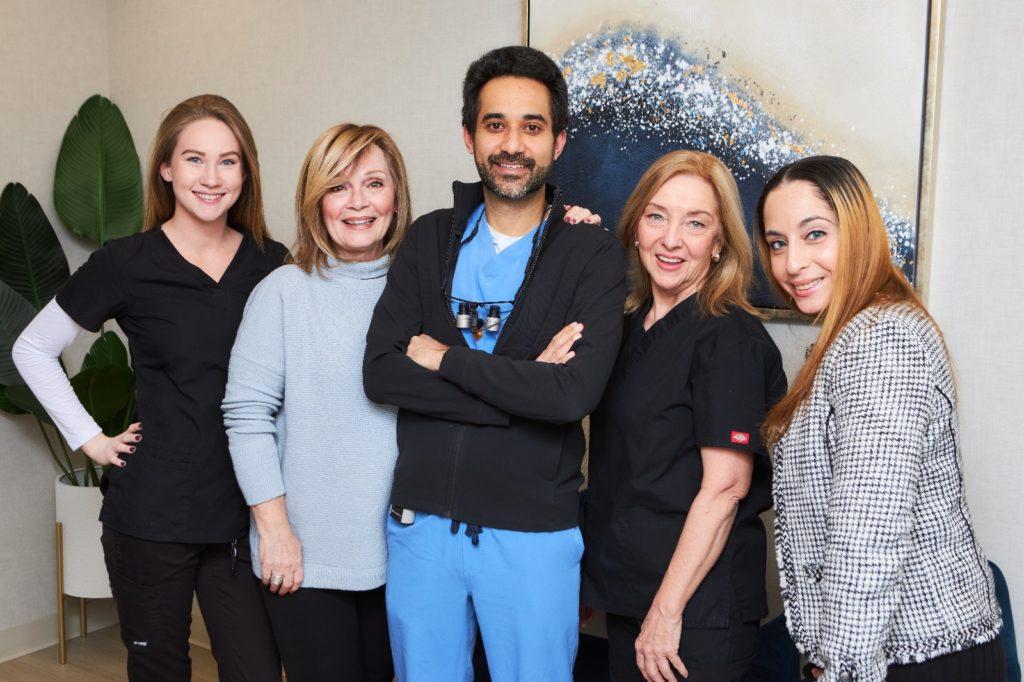Notifications

7 minutes, 46 seconds
-11 Views 0 Comments 0 Likes 0 Reviews

A professional teeth cleaning is an essential part of maintaining your oral health. It’s not only a good way to keep your teeth and gums healthy, but it also helps prevent serious dental issues like cavities, gum disease, and plaque buildup. After your teeth cleaning appointment, you may feel refreshed, but it's essential to follow specific care guidelines to maintain your mouth's top condition and ensure your cleaning results last longer.
While your skilled dentist in Union Square will provide you with personalized instructions based on your unique needs, here’s a general guide to the do's and don'ts after a teeth cleaning.
After your teeth cleaning, it’s a good idea to rinse your mouth with water or a fluoride mouthwash. Fluoride helps strengthen your enamel and can further protect your teeth from cavities. It’s essential to do this after a deep cleaning or scaling to prevent bacteria from building up.
Staying hydrated after cleaning is essential for your overall health, and it’s also beneficial for your oral health. Water helps wash away any leftover debris or bacteria that may have been loosened during the cleaning process. Plus, it helps stimulate saliva production, which naturally protects your teeth.
While you may be eager to eat after your cleaning, it’s wise to avoid hard, crunchy, or sticky foods for the first few hours. Immediately following a teeth cleaning, your gums may be slightly sensitive. Eating softer foods, such as yogurt, soup, mashed potatoes, or scrambled eggs, can help reduce discomfort and prevent irritation.
After your cleaning, your dentist or hygienist may recommend brushing and flossing your teeth gently. It’s important not to overdo it, as your gums may be sensitive. Use a soft-bristled toothbrush and avoid aggressive brushing. This will help maintain the cleanliness and freshness of your mouth without irritating your gums.
To maintain your oral health, it's important to schedule regular teeth cleanings and checkups. Typically, you should visit your dentist every six months, but depending on your oral health and risk factors, your dentist may recommend more frequent visits. Consistent professional cleanings help remove plaque buildup that regular brushing and flossing can’t fully eliminate.
If you experience any sensitivity after a cleaning, your dentist may suggest using a desensitizing toothpaste. This can help soothe any discomfort and reduce sensitivity to hot or cold foods and beverages.
After your cleaning, your teeth may be sensitive, especially if you had a deep cleaning or scaling. It’s a good idea to avoid consuming very hot or cold foods or drinks immediately after your appointment, as they can cause discomfort. Try to stick to lukewarm or room-temperature foods and drinks for the first few hours after your cleaning.
Smoking after a teeth cleaning is not only detrimental to your oral health but can also undo the benefits of the cleaning. Smoking can stain your teeth and contribute to the buildup of plaque and tartar. Additionally, it can irritate your gums and slow down the healing process if you had a more intensive cleaning. It’s best to avoid smoking, especially in the first 24 hours.
Right after your cleaning, your teeth are more vulnerable to the effects of sugary or acidic foods. Foods like soda, citrus fruits, and candies can damage your enamel, especially when it’s temporarily softer after a cleaning. Avoid these types of foods for at least a few hours after your appointment to maintain the benefits of the cleaning.
After your cleaning, avoid using a hard-bristled toothbrush, as this can irritate your gums. Hard brushes can be too abrasive and may undo the positive effects of your cleaning. Stick to a soft-bristled toothbrush to prevent gum damage and ensure gentle yet effective cleaning.
You may be tempted to chew on complex objects like ice, pens, or fingernails, but after a cleaning, your teeth and gums are more sensitive. Biting down on complex objects can damage your teeth, cause sensitivity, or irritate your gums. Wait until your mouth feels fully healed and comfortable before engaging in any behavior that might put unnecessary stress on your teeth.
Your dentist may recommend additional treatments, such as fluoride treatments or specific instructions to improve your dental care routine. Failing to follow these recommendations can compromise your ability to maintain a clean and healthy mouth after your cleaning. Follow up on any suggestions or follow-up appointments as needed to ensure long-term dental health.
Conclusion
After a dental cleaning in Union Square, it’s essential to follow the proper aftercare guidelines to ensure your mouth stays fresh, healthy, and complication-free. By following these do’s and don’ts, you’ll be able to enjoy the full benefits of a professional teeth cleaning, including brighter teeth, healthier gums, and a reduced risk of future dental problems. Always remember to schedule regular visits to your dentist and maintain a healthy oral hygiene routine at home. This will ensure that your teeth remain in optimal condition and your smile stays as bright as possible.

